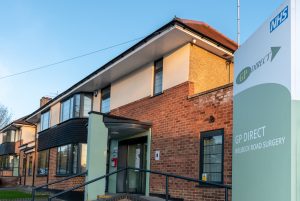If you’re planning to have a baby here is helpful advice on how to improve health of your pregnancy and your baby:
- https://www.nhs.uk/pregnancy/trying-for-a-baby/planning-your-pregnancy/
- https://www.tommys.org/pregnancy-information/planning-a-pregnancy/are-you-ready-conceive
Covid-19 can cause severe illness in pregnant women so you may wish to delay pregnancy till after you have had your COVID-19 1st & 2nd dose vaccinations and booster vaccination. There is no need for a pregnancy test before vaccination and women planning a pregnancy do not need to delay it after having the vaccination.
Take folic acid tablets for 3 months before you become pregnant and up until you are 12 weeks pregnant to give protection to your future baby against neural tube defects, such as spina bifida. Most women are advised to take a 400mcg supplement every day (available over the counter).
Women who have a higher risk of pregnancy affected by neural tube defects are advised to take a higher dose of 5mg folic acid. To get a higher dose talk to your doctor as 5mg tablets aren’t available without a prescription. You may have a higher risk if:
- you have diabetes
- you or your partner have a neural tube defect
- you have had a previous pregnancy affected by a neural tube defect
- you or your partner have a family history of neural tube defects
- you have epilepsy
- you are a heavy drinker
- you are obese (Body Mass Index, BMI, above 30)
You need 10 micrograms (equivalent to 400 IU) of Vitamin D each day and should consider taking a supplement containing this amount between September and March or all year round if you have dark skin or cover most of your skin when outdoors.
Plan and space your pregnancies as a gap between pregnancies of less than 12 months can cause problems such as premature delivery or low birth weight of baby.
Optimise your mental well-being as the mental health of parents affects the development of their children: https://www.good-thinking.uk
Stop smoking as it causes fertility problems and is the biggest cause of pregnancy problems and loss that you can change. For support: https://www.nhs.uk/live-well/quit-smoking/nhs-stop-smoking-services-help-you-quit/
Reduce alcohol and caffeine 3 months before you become pregnant. There is no known safe level of alcohol in pregnancy so the safest thing to do is not drink any alcohol at all if you’re trying for a baby. Limit your caffeine intake to 200mg a day. Caffeine calculator: https://www.tommys.org/pregnancy-information/planning-a-pregnancy/are-you-ready-to-conceive/caffeine-and-getting-pregnant
The best foods for getting pregnant are the same as those for general well-being: whole grains, healthy fats and proteins.
Being a healthy weight is beneficial if you are planning to have a baby. Obesity can cause problems in your pregnancy and effect your baby. Your BMI is a measure that uses your height and weight to work out if your weight is in a healthy range: https://www.nhs.uk/live-well/healthy-weight/bmi-calculator/
Do regular, moderate exercise as women who do, get pregnant quicker than women who don’t exercise regularly. Try an NHS App, such as Couch to 5K: https://www.nhs.uk/live-well/exercise/get-running-with-couch-to-5k/
Ready for Pregnancy booklet in various languages:
https://www.southeastclinicalnetworks.nhs.uk/ready-for-pregnancy-booklet/













